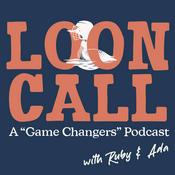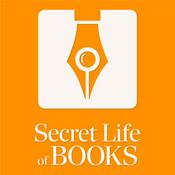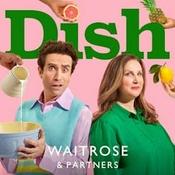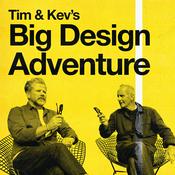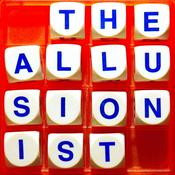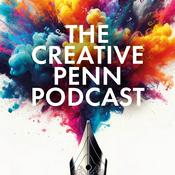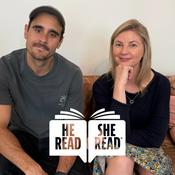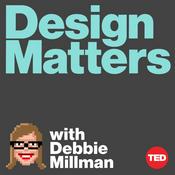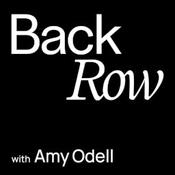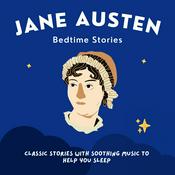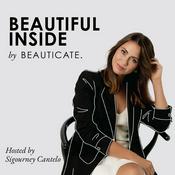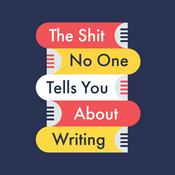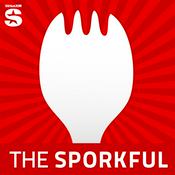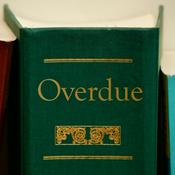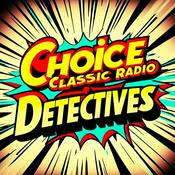86 episodes
- G'day, everyone! Welcome to show number eighty-five. It was in January 2024 that I finally picked up a keyboard to start learning the piano. That means I've officially passed the two-year mark! I’m not organised enough to know the exact date,but looking back, deciding to learn the piano after sixty was undoubtedly a great decision.
Podcast Review: The Music Show I recently rediscovered "The Music Show" on ABC Radio National, hosted by Dr Andrew Ford. I was reminded of it after hearing Andrew on another podcast discussing Stravinsky’s "The Rite of Spring." "The Music Show" is a fantastic program that covers every conceivable genre. Recent episodes have featured guests ranging from Neil and Tim Finn of "Split Enz" to Ursula Yovich singing Nina Simone, and topics like the role of the bazouki in Irish Folk Music. Andrew’s relaxed and informed style makes it a permanent part of my listening rotation.https://www.abc.net.au/listen/programs/musicshow
Essay: Year Two Reflecting on two years of learning, I realised that while my technical progress is roughly where I expected—moving into Grade One pieces and passing theory exams—the real value has been the experiences along the way. Deciding to learn the piano has opened doors I didn't anticipate. It led to a subscription to the Sydney Symphony Orchestra, attending jazz concerts with my teacher Devi, and even singing in front of a thousand people with the Belong choir. For Year Three, I’m planning more theatre, more concerts, and perhaps joining a choir permanently.
Review: David Bennett's new channel Just as I was finalising this week's show, I saw that David Bennett has launched a new interview channel and podcast called "How do you do?". He speaks with other creators, and given the quality of his existing work, this is definitely worth checking out.https://www.youtube.com/channel/UCVDanqrFSHgX-hlqFs4AZ7w
Progress In my lessons with Devi, we are shifting focus slightly towards modern and pop music. I’ve started working on a chord progression in A minor, practicing smooth transitions between root position chords. It’s a new challenge,especially the sevenths in the left hand! I’m also continuing with "Sea Song" and the "Moonlight" Sonata.
The music was recorded using the Kawai NV10, Cubase 15 on a Mac Mini, and Pianoteq 9 emulating a Shigeru Kawai SK-EX grand piano.
If you'd like to get in touch, email me at [email protected].
The contents of the podcast were entirely generated by David Reidy, but these show notes were created by Gemini.
Send me a text message.
You can contact me:
via email at [email protected]; this is probably the best option
the show website, www.pianofinally.show
Instagram and Threads @pianofinally
and on YouTube
all the podcast directories - list
here's the RSS feed
Some of the links to books and other items mentioned in the podcast may affiliate links for Amazon or other providers. If you use one of these links, a commission may be paid to me at no additional cost to you. Thank you if you use a link.
All reviews of products, websites and services are unpaid, and no sponsorship has been received for any content on this podcast. - G'day, everyone! Welcome to show number eighty-four. The holidays are officially over, and we are back into the swing of things at school. It’s been a busy week of planning and welcoming new classes, but it's always nice to have a fresh start.
Follow-up: Amazon Returns Last week, I mentioned receiving some dubious print-on-demand music books from Amazon. I’m happy to report that the return process was incredibly simple, and the refund was processed almost immediately. I still haven't found the proper copyright owners to notify them, but I’ll keep looking.
YouTube Review: The story of Vigil: Belong This week’s video recommendation is a special one because, if you squint, you might just spot me! The Sydney Festival has released a video about the Vigil: Belong performance. It features interviews with Nardi Simpson and clips from the rehearsals and the performance itself. It’s a beautiful summary of the event. https://www.youtube.com/watch?v=vjp-LNCHDKQ
Essay: Say "Yes" Reflecting on my recent experience with the Belong Choir, I realised that none of it would have happened if I hadn't simply said "Yes." As we get older, it's easy to stick to the comfortable and predictable, but opportunities for growth and fun usually lie just outside that comfort zone. From filling out an expression of interest form on a whim to singing in front of a thousand people, saying "Yes" has been the best strategy for 2026 so far.
Review: Megalong Music Festival I received an email about the upcoming Megalong Music Festival, held in the picturesque Megalong Valley in the Blue Mountains. I attended last year, and it was fantastic. This year's program for Easter Saturday and Sunday looks incredibly varied, featuring music from Hayden to Pärt. With performers like Jacqui Cronin, Timothy Nankervis, and Ieva Jokubaviciute, it’s definitely worth the drive. https://www.megalongmusicfestival.com.au/
Progress Piano lessons resume this week! Over the break, practice was a bit sparse, but I’ve been enjoying "Sea Song," which has just the right amount of complexity. I’m also making decent headway with the "Moonlight" Sonata. "Trumpet Tune" and "A Wild Chase" are still in the works, and I'll update you on those when I've made more progress.
If you'd like to get in touch, email me at [email protected].
The contents of the podcast were entirely generated by David Reidy, but these show notes were created by Gemini.
Send me a text message.
You can contact me:
via email at [email protected]; this is probably the best option
the show website, www.pianofinally.show
Instagram and Threads @pianofinally
and on YouTube
all the podcast directories - list
here's the RSS feed
Some of the links to books and other items mentioned in the podcast may affiliate links for Amazon or other providers. If you use one of these links, a commission may be paid to me at no additional cost to you. Thank you if you use a link.
All reviews of products, websites and services are unpaid, and no sponsorship has been received for any content on this podcast. - G'day, everyone! Welcome to show number eighty-three. I’m writing this week's show from a slightly different location:under the shade of a Eucalypt tree at the Stargazer Lawn in Barangaroo. It is the day of the dress rehearsal for the Belong Choir's performance at the Sydney Festival Vigil. The atmosphere is buzzing with activity as chairs are set up and the area is taped off. It’s been a busy weekend, but a privilege to be part of such a special event.
YouTube Review: Three Elton John Songs for Beginners Coincidentally, just as I decided to look into learning some Billy Joel and Elton John music, a video popped up from the London School of Contemporary Piano featuring Tom Donald. Tom breaks down "Your Song," "Goodbye Yellow Brick Road," and "Sacrifice" as a way to teach chords. He moves from simple root position chords to more complex progressions and arpeggiation. It’s a great resource if you want to understand the structure behind these iconic tracks.https://www.youtube.com/watch?v=IPm05-5KBz0
Essay: Who's listening? Inspired by a video from David Bennett, I’ve been thinking about Artificial Intelligence in music. While AI might inevitably take over "unimportant" music—like the hold music I used to license for my scuba shop—I believe there will always be a place for "important" music where listeners crave a human connection. We want to know the stories behind the songs, whether it’s Taylor Swift’s romances or Mozart’s final days.https://www.youtube.com/watch?v=CrcUJI197Vs
Review: Billy Joel and Elton John sheet music I recently purchased two sheet music collections from Amazon to expand my repertoire. Unfortunately, upon arrival, I discovered they were print-on-demand books manufactured by Amazon with absolutely no publisher details or copyright acknowledgements. I don't believe people should profit from the work of others without proper compensation, so I’m sending them back. A warning to be careful when buying music online!
Progress Practice has been a bit spotty this week due to holiday tasks like writing school programs and tidying the house."Sea Song" is coming along bit-by-bit. regarding "A Wild Chase," I’ve made an executive decision to ignore the "As fast as you can" instruction. I’m going to play it at a speed where the notes actually sound musical rather than just noise. Work also continues on "Trumpet Tune" and memorising the chord progressions for the "Moonlight" Sonata.
If you'd like to get in touch, you can contact me at [email protected].
The contents of the podcast were entirely generated by David Reidy, but these show notes were created by Gemini.
Send me a text message.
You can contact me:
via email at [email protected]; this is probably the best option
the show website, www.pianofinally.show
Instagram and Threads @pianofinally
and on YouTube
all the podcast directories - list
here's the RSS feed
Some of the links to books and other items mentioned in the podcast may affiliate links for Amazon or other providers. If you use one of these links, a commission may be paid to me at no additional cost to you. Thank you if you use a link.
All reviews of products, websites and services are unpaid, and no sponsorship has been received for any content on this podcast. - G'day, everyone! Welcome to show number eighty-two. I’ve just returned from a week in Queensland visiting family, though it meant very little piano practice happened. It’s been great working in the Belong Choir with Nardi Simpson, a Yuwaalaraay storyteller and composer, who makes the rehearsals inclusive and fun.
Podcast Recommendation: No one saw it coming I’m a big fan of history podcasts, and this week I recommend Marc Fennell’s "No one saw it coming." Specifically, the episode "The ballet that caused a riot and changed music," which dives into Stravinsky’s The Rite of Spring. Marc and Andrew Ford explore the music, the riots (real or exaggerated), and how Disney’s Fantasia eventually cemented Stravinsky’s fame.
https://www.abc.net.au/listen/programs/no-one-saw-it-coming/the-rite-of-spring/105872884?utm_content=link&utm_medium=content_sharedhttps://www.abc.net.au/listen/programs/no-one-saw-it-coming
Essay: The "T" Word There is a word I try to avoid: Talent. While often meant as a compliment, attributing success to "talent" discounts the hundreds of hours of effort and commitment a musician puts in. Whether it’s a child prodigy or Rachmaninov, what we see is the result of hard work, not just a genetic lottery. Let’s replace the "T" word with “Effort".
Review: Grand Solos for Christmas, Book 3 I decided it’s time to add some seasonal music to my repertoire—and starting in January gives me plenty of time! I picked up Melody Bober’s Grand Solos for Christmas, Book 3. Rated for "Late Elementary," these arrangements are approachable (keys of F, C, G, D) but musical enough to sound great at a family gathering.
https://www.alfred.com/authors/melody-bober/https://www.amazon.com.au/dp/1470617307?ref=ppx_yo2ov_dt_b_fed_asin_title
Progress Since I was away, I didn't practice. Instead of rusty playing, I’m sharing professional performances of the pieces I’m currently learning:
"A Wild Chase" performed by Roderick MacFarlane https://www.youtube.com/watch?v=t2XtjcjQyqA
"Trumpet Tune" performed by Piano with Beth https://www.youtube.com/watch?v=hpqGF7J8aLc
"Sea Song" performed by Alan Chan https://www.youtube.com/watch?v=DykqLkbUAGM
"Moonlight Sonata" performed by Danie
Send me a text message.
You can contact me:
via email at [email protected]; this is probably the best option
the show website, www.pianofinally.show
Instagram and Threads @pianofinally
and on YouTube
all the podcast directories - list
here's the RSS feed
Some of the links to books and other items mentioned in the podcast may affiliate links for Amazon or other providers. If you use one of these links, a commission may be paid to me at no additional cost to you. Thank you if you use a link.
All reviews of products, websites and services are unpaid, and no sponsorship has been received for any content on this podcast. - Welcome to show eighty-one! It's scorching here—hitting 43°C—and I'm busy prepping for the new school year. I’m recording early this week as I’m heading to Queensland to assemble a 3D printer for the grandkids!
YouTube Review: Matthew Cawood - 30 Piano Techniques Matthew Cawood's video "30 Piano Techniques Explained in 15 Minutes" is excellent revision. He covers everything from basic articulation to ornaments and bass patterns like the Alberti bass. I even found a few new ones, like "octave legato." https://www.youtube.com/watch?v=rH8BxXAHnWs
Essay: Play What You Like Inspired by a David Snyder short, I discuss why adult learners should prioritize music they enjoy over strict syllabuses. Whether it’s "Blackout Blues" or an ambitious "Moonlight Sonata," playing music that motivates you is key.https://www.youtube.com/shorts/jSMyRu7ujo0
Review: Businesses I conclude my channel reviews with these businesses creating great content:
Merriam Pianos: Stu Harrison produces top-tier, unbiased comparison videos.https://www.youtube.com/@MerriamPianos
Living Pianos Videos: Robert Estrin shares engaging stories and tips from a life in music.https://www.youtube.com/@LivingPianosVideos
Andertons Synths: Jack Duxbury brings high energy to reviews and blindfold "shootouts." https://www.youtube.com/@AndertonsKeyboardDept
Bonner's Pianos: Tony offers performance-heavy reviews, great for hearing the instruments.https://www.youtube.com/@bonnersmusic
Alamo Music: Ted Barsalou offers unique insights and interviews with other musicians.https://www.youtube.com/@apianogallery
Progress "A Wild Chase" is becoming more consistent, though I need to speed up the middle. "Trumpet Tune" is improving with a focus on articulation. "Sea Song" is slow going with its complex rhythm, and "Moonlight Sonata" is on hold until I return from my trip.
Contact me at [email protected].
The contents of this podcast were entirely generated by me, David Reidy, but these show notes were created by Gemini.
Send me a text message.
You can contact me:
via email at [email protected]; this is probably the best option
the show website, www.pianofinally.show
Instagram and Threads @pianofinally
and on YouTube
all the podcast directories - list
here's the RSS feed
Some of the links to books and other items mentioned in the podcast may affiliate links for Amazon or other providers. If you use one of these links, a commission may be paid to me at no additional cost to you. Thank you if you use a link.
All reviews of products, websites and services are unpaid, and no sponsorship has been received for any content on this podcast.
More Arts podcasts
Trending Arts podcasts
About Piano, finally
Piano Finally is a podcast by an old bloke who is learning the piano, finally. I cover the process of learning the piano and music theory as an adult learner. I also review piano books, hardware and other materials from an adult learner's perspective.
Podcast websiteListen to Piano, finally, ill-advised by Bill Nighy and many other podcasts from around the world with the radio.net app
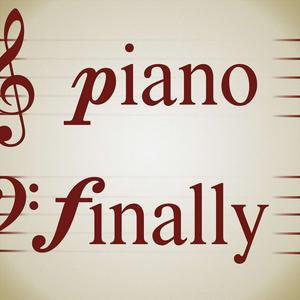
Get the free radio.net app
- Stations and podcasts to bookmark
- Stream via Wi-Fi or Bluetooth
- Supports Carplay & Android Auto
- Many other app features
Get the free radio.net app
- Stations and podcasts to bookmark
- Stream via Wi-Fi or Bluetooth
- Supports Carplay & Android Auto
- Many other app features


Piano, finally
Scan code,
download the app,
start listening.
download the app,
start listening.


